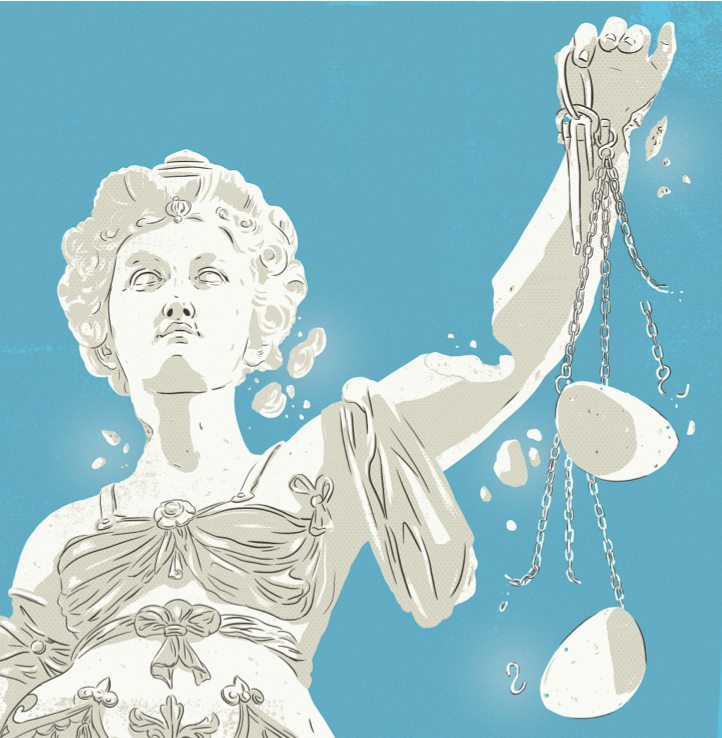Our criminal justice system is heading off a cliff. And fast.
Having practised law for the past eight years and founded my own firm, I’m starting to read the tea leaves. With legal aid funding for criminal matters stagnating, defence firms are accepting fewer and fewer legal aid certificates — and, in turn, hiring fewer junior lawyers. So law school grads who want to join the defence world have to do it on their own. It’s a dismal prospect. It’s harder to find mentorship and it’s basically impossible to make ends meet. (These days, I run my own practice, but after law school, I was one of the lucky ones who landed a job at an established firm.) Finding their morale sapped, many lawyers abandon the defence bar altogether.
In the past year alone, I’ve seen a half-dozen friends flee the field of criminal law to more economically stable climes. Three colleagues joined the Crown’s office, seeking a steady income and trial experience. Two left the city, and one is now a civil litigator. In essence, the defence bar is losing a sizable portion of my generation.
Here’s where we’re headed: in 10 to 15 years, most criminal lawyers will not have received the same on-the-job training as their Crown counterparts. Nor will there be enough lawyers with that critical experience to meet demand. Together, these two factors will rig the courts against the criminally accused. Hardly what I would consider a fair justice system.
There have been efforts to reverse this trend, but they fall woefully short. At the end of last year, for instance, the provincial government increased the number of legal aid certificates it would issue to those who cannot afford legal fees. (A person must earn less than $11,448 a year to qualify.) And earlier in the year, it raised the hourly rates for lawyers working on a legal aid case for the first time in years — for most junior counsel, the billable rate rose from $98.99 to $103.94. Because cash clients gravitate towards more experienced counsel, young lawyers have to survive on a diet consisting solely of legal aid work.
This is a tough reality. Let’s run through the expenses of an aspiring criminal lawyer trying to make it work as a sole practitioner. First, they have to pay rent and legal insurance. And they can scarcely hope for referrals and opportunities to tail a mentor when they are compelled to work out of their home or a “virtual law office” at reduced rent that provides sporadic access to a boardroom. Further, many complex cases that Legal Aid once paid at an hourly rate are now paid on a block-fee basis. As a result, young lawyers taking these cases must invest piles of unpaid hours into a file.
Many young defence lawyers do civil work on the side just to survive. But, quite simply, it is almost impossible to get a practice off the ground in the current climate. Again, the advantage goes to the Crown.
Here’s my call to action: rather than blaming young lawyers for their plight, my generation needs influential allies to rally to our cause. Such a thing happened once before, in 2009, when criminal lawyers boycotted the legal aid system. This impressive initiative spurred a funding increase — yet we still see too little money going to criminal certificates. Judges, senior practitioners and professional organizations need to lobby again for a genuine increase in legal aid funding for criminal matters. There may still be time to help junior criminal lawyers keep the lights on as they hone their craft. Relatively speaking, it won’t take much. But, if we do nothing, then the whole system will crash and burn.
Andrew Furgiuele is a defence lawyer and the co-founder at Doucette Boni Santoro Furgiuele. He is the Recent Call Director of the Criminal Lawyers’ Association.

 This story is from our Spring 2015 issue.
This story is from our Spring 2015 issue.
Illustration by Sabrina Smelko


